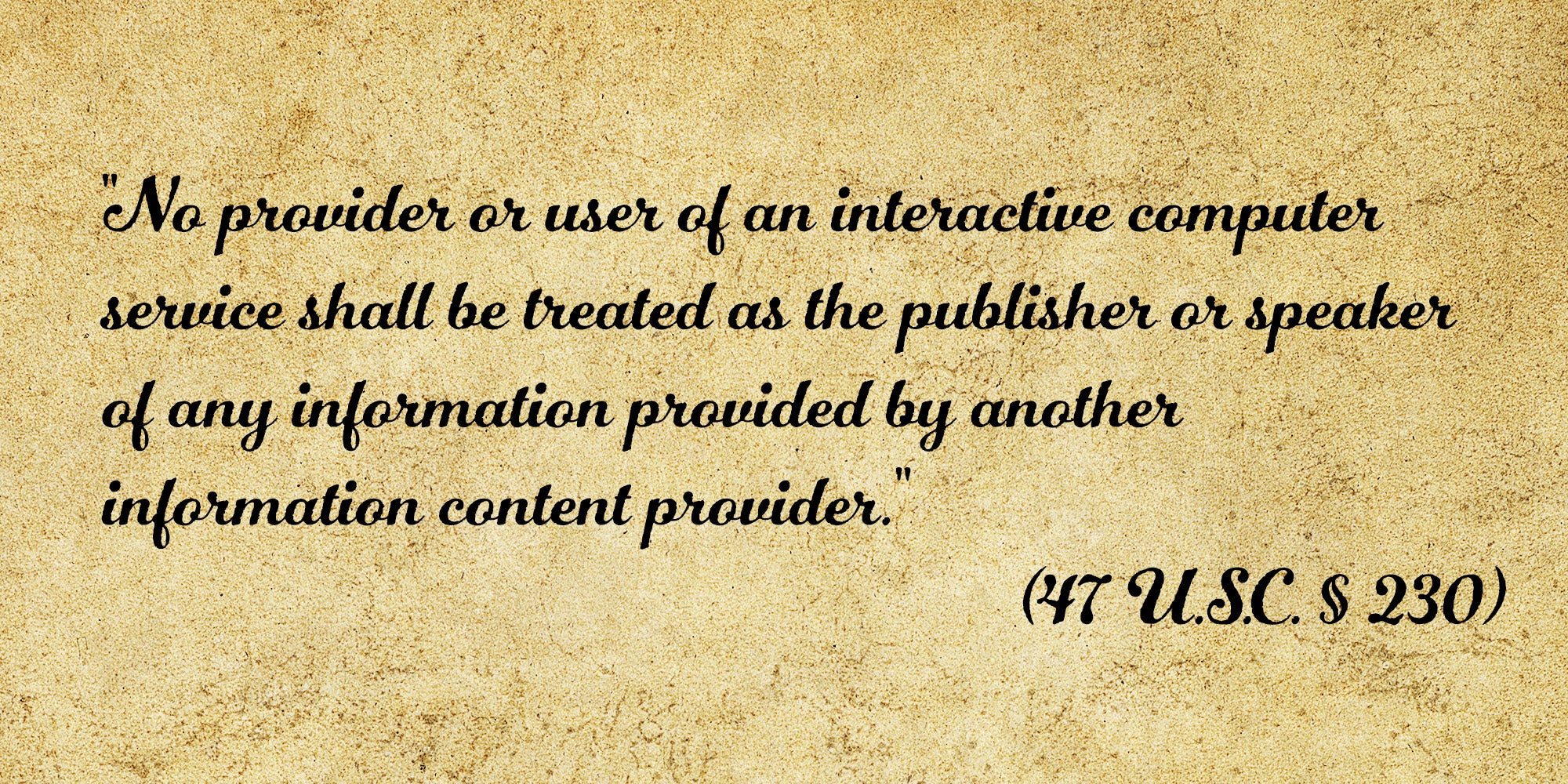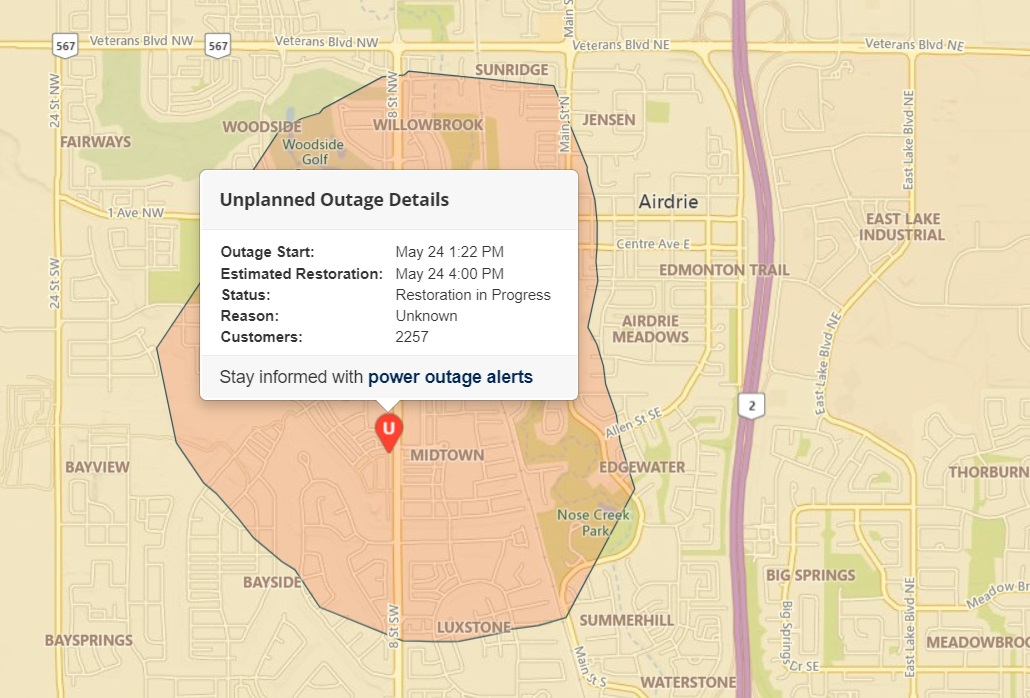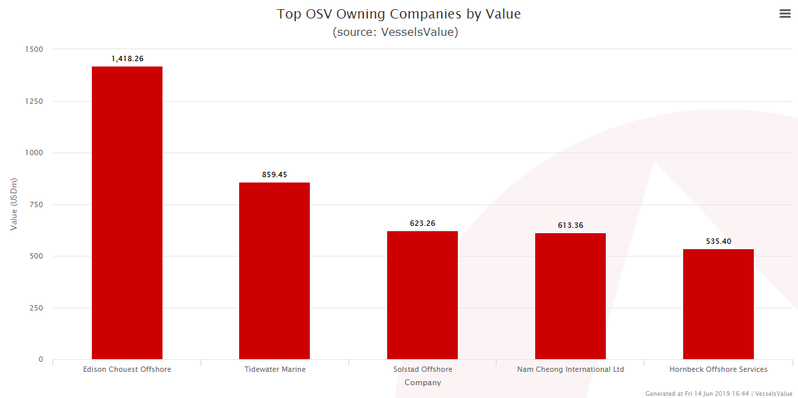Section 230 And Banned Chemicals: A Recent EBay Ruling

Table of Contents
H2: Understanding Section 230 and its Role in Online Platforms
Section 230 of the Communications Decency Act of 1996 has been a cornerstone of the internet's development, providing significant legal protection to online platforms. It generally protects online service providers from liability for user-generated content. This means that websites and online marketplaces are typically not held responsible for the content posted by their users, even if that content is illegal or harmful. However, this protection isn't absolute.
Section 230's limitations are significant. While it shields platforms from liability for most user-generated content, it doesn't offer complete immunity. Key exceptions exist, particularly when a platform is found to have knowingly facilitated illegal activity. This is where the recent eBay ruling becomes critical.
- Section 230's protection from liability for third-party content: This is the core principle of Section 230, protecting platforms from lawsuits based on content created by their users.
- Exceptions to Section 230 protection: This includes situations where platforms actively participate in creating or developing illegal content, or where they have clear knowledge of illegal activity and fail to take appropriate action.
- The ongoing debate about Section 230 reform: The legal interpretation and application of Section 230 are constantly evolving, leading to ongoing debates about its effectiveness and potential for reform.
H2: The eBay Ruling: A Detailed Analysis
The eBay ruling, while specific to its facts, serves as a cautionary tale for online marketplaces. The court found eBay liable, at least in part, for the sale of certain banned chemicals on its platform. The exact details of the chemicals involved may vary depending on the specific case, but the ruling underscores the limitations of Section 230's protection when a platform demonstrates knowledge and a failure to act effectively to prevent the sale of illegal goods.
The court's reasoning centered on eBay's knowledge of the illegal listings and its failure to implement sufficient measures to prevent them. This included a perceived lack of effective moderation policies and algorithmic detection systems. The ruling didn't entirely negate Section 230, but it significantly narrowed its protective scope in this specific context.
- Specific types of banned chemicals involved in the case: The specific types of chemicals involved will vary case-by-case, but the ruling emphasizes the need for stricter controls on the sale of hazardous materials.
- The role of eBay's algorithms and moderation policies in the ruling: The court found deficiencies in eBay's systems for identifying and removing illegal listings, which contributed to the platform's liability.
- The potential penalties faced by eBay due to the ruling: The penalties could include substantial fines and legal costs, emphasizing the high stakes involved in failing to adequately manage illegal listings.
- Analysis of how the ruling might affect future legal cases involving online marketplaces: This ruling sets a precedent, raising the bar for online marketplaces' responsibilities in policing illegal activity on their platforms.
H2: Implications for Online Marketplaces and Sellers
The eBay ruling has significant implications for other online marketplaces like Amazon and Etsy. It underscores the increased legal risks associated with failing to effectively monitor and remove illegal or dangerous products from their platforms. Sellers now face greater scrutiny and potential liability, even if they are not directly involved in the production of banned products.
- Increased scrutiny for product listings on online marketplaces: Expect more stringent monitoring of product listings, requiring sellers to provide more comprehensive information about their products.
- Potential changes in seller policies and terms of service agreements: Online marketplaces are likely to revise their policies, increasing sellers' responsibilities and potential liability for non-compliance.
- The need for improved seller education regarding legal compliance: Online marketplaces will need to provide more robust education to their sellers regarding legal requirements and best practices for selling products online.
- Increased investment in technology to detect and remove banned or dangerous products: Expect increased investment in sophisticated algorithms and artificial intelligence to monitor listings more effectively.
H3: The Impact on Consumer Safety
The ruling’s impact on consumer safety is undeniable. The sale of banned chemicals online poses serious health and environmental risks. The ruling highlights the need for stronger regulatory oversight of online marketplaces to ensure the safety of consumers.
- Potential risks associated with purchasing banned chemicals online: Consumers face significant risks, including exposure to hazardous substances, health problems, and environmental damage.
- The role of consumer awareness and reporting in mitigating these risks: Consumers need to be aware of the risks and report suspicious listings to online marketplaces and relevant authorities.
- The importance of government regulations to protect consumers: Strong government regulations are vital for ensuring that online marketplaces are held accountable for the safety of products sold on their platforms.
3. Conclusion
The eBay ruling, in conjunction with the complexities of Section 230, significantly impacts online marketplaces, sellers, and consumer safety. The ruling clarifies that Section 230's protection is not absolute, particularly when platforms have knowledge of and fail to address illegal activity on their platforms. This requires online marketplaces to invest in better detection technologies, improve seller education, and implement stricter policies regarding banned products. Understanding Section 230, staying compliant with regulations regarding banned chemicals, and protecting yourself from legal liability related to Section 230 are now more crucial than ever. To ensure consumer safety in the online marketplace, continued vigilance and proactive measures are necessary. Stay informed about updates to Section 230 and its impact on e-commerce; further research into the legal implications of selling products online is strongly recommended.

Featured Posts
-
 Former Child Star Amanda Bynes Joins Only Fans A Strict Content Policy Explained
May 18, 2025
Former Child Star Amanda Bynes Joins Only Fans A Strict Content Policy Explained
May 18, 2025 -
 Reddit Outage Global Issues Impacting Thousands
May 18, 2025
Reddit Outage Global Issues Impacting Thousands
May 18, 2025 -
 Analyzing The Canadian Tire Hudsons Bay Merger Opportunities And Challenges
May 18, 2025
Analyzing The Canadian Tire Hudsons Bay Merger Opportunities And Challenges
May 18, 2025 -
 Los Angeles Angels Win 1 0 Jose Sorianos Stellar Performance
May 18, 2025
Los Angeles Angels Win 1 0 Jose Sorianos Stellar Performance
May 18, 2025 -
 Kanye Wests New Song Diddy North West Collaboration Despite Kim Kardashians Attempts To Block It
May 18, 2025
Kanye Wests New Song Diddy North West Collaboration Despite Kim Kardashians Attempts To Block It
May 18, 2025
Latest Posts
-
 Stephen Miller Tipped To Replace Mike Waltz As National Security Advisor
May 18, 2025
Stephen Miller Tipped To Replace Mike Waltz As National Security Advisor
May 18, 2025 -
 Suffolk Boys Heroic Rescue At Great Wolf Lodge
May 18, 2025
Suffolk Boys Heroic Rescue At Great Wolf Lodge
May 18, 2025 -
 Snl Spoofs Signal Leak With Mikey Madison Texting Government Officials
May 18, 2025
Snl Spoofs Signal Leak With Mikey Madison Texting Government Officials
May 18, 2025 -
 Mikey Madisons Snl Cold Open A Signal Group Chat Parody
May 18, 2025
Mikey Madisons Snl Cold Open A Signal Group Chat Parody
May 18, 2025 -
 Mikey Madison Texts Government Officials In Snls Signal Chat Spoof Cold Open
May 18, 2025
Mikey Madison Texts Government Officials In Snls Signal Chat Spoof Cold Open
May 18, 2025
